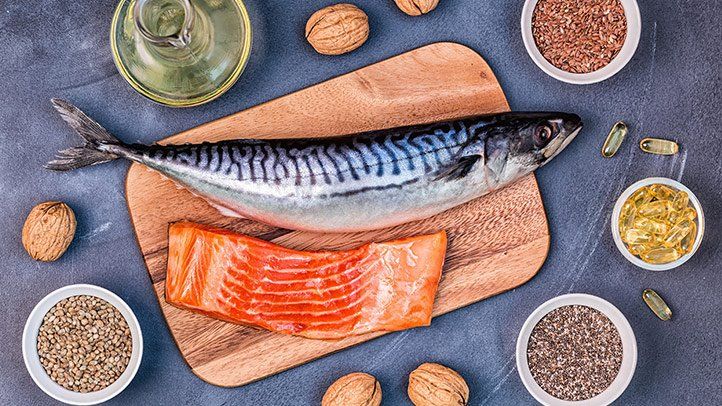Eating a diet rich in omega 3 (n-3) fatty acids reduces the frequency of headaches compared with a diet with a normal intake of omega 3 and omega 6 (n-6) fatty acids, finds a study published by The BMJ today.
Modern industrialized diets tend to be low in omega 3 fatty acids and high in omega 6 fatty acids. These fatty acids are precursors to oxylipins - molecules involved in regulating pain and inflammation.
Oxylipins derived from omega 3 fatty acids are associated with pain-reducing effects, while oxylipins derived from omega 6 fatty acids worsen to pain and can provoke migraines. But previous studies evaluating omega 3 fatty acid supplements for migraine have been inconclusive.
So a team of US researchers wanted to find out whether diets rich in omega 3 fatty acids would increase levels of the pain-reducing 17-hydroxydocosahexaenoic acid (17-HDHA) and reduce the frequency and severity of headaches.
Their results are based on 182 patients at the University of North Carolina, USA (88% female; average age 38 years) with migraine headaches on 5-20 days per month who were randomly assigned to one of three diets for 16 weeks.
The control diet included typical levels of omega 3 and omega 6 fatty acids. Both interventional diets raised omega 3 fatty acid intake. One kept omega 6 acid intake the same as the control diet, and the other concurrently lowered omega 6 acid intake.
During the trial, participants received regular dietary counseling and access to online support information. They also completed the headache impact test (HIT-6) - a questionnaire assessing headache impact on quality of life. Headache frequency was assessed daily with an electronic diary.
Over the 16 weeks, both interventional diets increased 17-HDHA levels compared with the control diet, and while HIT-6 scores improved in both interventional groups, they were not statistically significantly different from the control group.
However, headache frequency was statistically significantly decreased in both intervention groups.
The high omega 3 diet was associated with a reduction of 1.3 headache hours per day and two headache days per month. The high omega 3 plus low omega 6 diet group saw a reduction of 1.7 headache hours per day and four headache days per month, suggesting additional benefit from lowering dietary omega-6 fatty acid.
Participants in the intervention groups also reported shorter and less severe headaches compared with those in the control group.
This was high quality, well-designed trial, but the researchers do point to some limitations, such as the difficulty for patients to stick to a strict diet and the fact that most participants were relatively young women so results may not apply to children, older adults, men, or other populations.
“While the diets did not significantly improve quality of life, they produced large, robust reductions in frequency and severity of headaches relative to the control diet,” they write.
“This study provides a biologically plausible demonstration that pain can be treated through targeted dietary alterations in humans. Collective findings suggest causal mechanisms linking n-3 and n-6 fatty acids to [pain regulation], and open the door to new approaches for managing chronic pain in humans,” they conclude.
She acknowledges that interpretation of this study’s findings is complex, but points out that trials of recently approved drugs for migraine prevention reported reductions of around 2-2.5 headache days per month compared with placebo, suggesting that dietary intervention can be comparable or better.
What’s more, many people with migraines are highly motivated and interested in dietary changes, she adds. These findings “take us one step closer to a goal long sought by headache patients and those who care for them: a migraine diet backed up by robust clinical trial results.”

 The trial provides “grounds for optimism†for many people with persistent headaches and those who care for them
The trial provides “grounds for optimism†for many people with persistent headaches and those who care for them



































